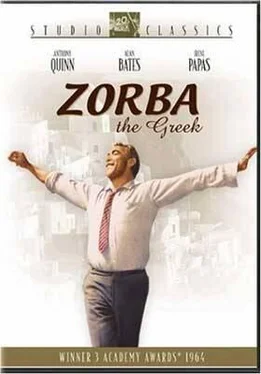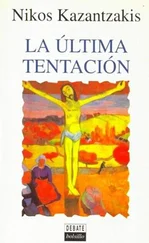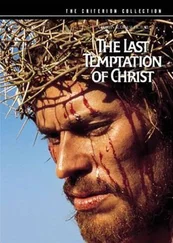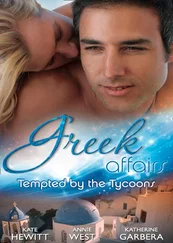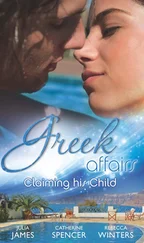Nikos Kazantzakis - Zorba The Greek
Здесь есть возможность читать онлайн «Nikos Kazantzakis - Zorba The Greek» весь текст электронной книги совершенно бесплатно (целиком полную версию без сокращений). В некоторых случаях можно слушать аудио, скачать через торрент в формате fb2 и присутствует краткое содержание. Жанр: Современная проза, на английском языке. Описание произведения, (предисловие) а так же отзывы посетителей доступны на портале библиотеки ЛибКат.
- Название:Zorba The Greek
- Автор:
- Жанр:
- Год:неизвестен
- ISBN:нет данных
- Рейтинг книги:3 / 5. Голосов: 1
-
Избранное:Добавить в избранное
- Отзывы:
-
Ваша оценка:
- 60
- 1
- 2
- 3
- 4
- 5
Zorba The Greek: краткое содержание, описание и аннотация
Предлагаем к чтению аннотацию, описание, краткое содержание или предисловие (зависит от того, что написал сам автор книги «Zorba The Greek»). Если вы не нашли необходимую информацию о книге — напишите в комментариях, мы постараемся отыскать её.
Zorba The Greek — читать онлайн бесплатно полную книгу (весь текст) целиком
Ниже представлен текст книги, разбитый по страницам. Система сохранения места последней прочитанной страницы, позволяет с удобством читать онлайн бесплатно книгу «Zorba The Greek», без необходимости каждый раз заново искать на чём Вы остановились. Поставьте закладку, и сможете в любой момент перейти на страницу, на которой закончили чтение.
Интервал:
Закладка:
He looked at me, as if calling for help. I could see that this problem had tormented him a lot and that he could not get to the bottom of it.
"Do you understand?" he asked me with anguish.
Understand what? Tell him what? Either that what we call God does not exist, or else that what we call murders and villainy is necessary for the struggle and for the liberation of the world…
I tried hard to find for Zorba another, simpler way of explaining it.
"How does a plant sprout and grow into a flower on manure and muck? Say to yourself, Zorba, that the manure and muck is man and the flower liberty."
"But the seed?" cried Zorba, striking his fist on the table. "For a plant to sprout there must be a seed. Who's put such a seed in our entrails? Änd why doesn't this seed produce flowers from kindness and honesty? Why must it have blood and filth?"
I shook my head.
"I don't know," I said.
"Who does?"
"No one."
"But then," Zorba cried in despair and casting wild glances about him, "what d'you expect me to do with all your boats, and your machines and neckties?"
Two or three passengers whom the sea had upset, and who were now drinking coffee at a nearby table, revived. They sensed a quarrel and pricked up their ears.
This disgusted Zorba. He lowered his voice.
"Change the subject," he said. "When I think of that, I feel like breaking anything within reach-a chair, a lamp, or my head against the wall. But what good would that do me? I'd have to pay the breakages and go to a doctor and have my head bandaged. And if God exists, well, it's far worse: we're bloody well done for! He must be peering at me from up there in the sky and bursting his sides with laughter."
He suddenly made a movement with his hand as if getting rid of an importunate fly.
"Never mind!" he said regretfully. "All I wanted to tell you was this: When the royal ship arrived all decked up with flags, and they began to fire off rounds from the guns, and the prince set foot on Cretan soil… Have you ever seen a whole people gone mad because they've seen their liberty? No? Ah, boss, then blind you were born and blind you'll die. If I live a thousand years, even if all that remains of me is a morsel of living flesh, what I saw that day I'll never forget! And if each of us could choose his paradise in the sky, according to his taste-and that's how it should be, that's what I call paradise-I'd say to the Almighty: 'Lord, let my paradise be a Crete decked with myrtle and flags and let the minute when Prince George set foot on Cretan soil last for centuries!' That'll do me."
Zorba became silent once more. He raised his moustache, filled a glass to the brim with iced water and swallowed it in one gulp.
"What happened in Crete, Zorba? Tell me!"
"Do we have to start making big sentences?" said Zorba, annoyed. "Look here, I tell you, I do-this world is a mystery and man is just a great brute.
"A great brute and a god. A blackguard of a rebel who'd come from Macedonia with me-Yorga, they called him, a gallows' bird, a real swine, you know-well, he wept. 'Why're you crying, Yorga, you hound?' I said, and my eyes were streaming too. 'Why're you crying, you old swine?' But he just threw his arms round my neck and blubbered like a kid. And then that miserly bastard pulls out his purse, empties onto his lap the gold coins he'd looted from the Turks and throws them into the air by handfuls! D'you see, boss, that's what liberty is!"
I rose and went up on deck, to be buffeted by the keen sea breeze.
That's what liberty is, I thought. To have a passion, to amass pieces of gold and suddenly to conquer one's passion and throw the treasure to the four winds.
Free yourself from one passion to be dominated by another and nobler one. But is not that, too, a form of slavery? To sacrifice oneself to an idea, to a race, to God? Or does it mean that the higher the model the longer the tether of our slavery? Then we can enjoy ourselves and frolic in a more spacious arena and die without having come to the end of the tether. Is that, then, what we call liberty?
Towards the end of the afternoon we berthed by the sandy shore and saw finely sifted white sand, oleanders still in flower, fig and carob trees, and, further to the right, a low grey hill without a tree, resembling the face of a woman resting. And beneath her chin, along her neck, ran the dark brown veins of lignite.
An autumnal wind was blowing, frayed clouds were passing slowly over the earth and softening its contours with shadow. Other clouds were rising menacingly in the sky. The sun appeared and disappeared, and the earth's surface was brightened and darkened like a living and perturbed face.
I stopped for a moment on the sand and looked. A sacred solitude lay before me, deadly and yet fascinating, like the desert. The Buddhist song rose out of the very soil and found its way to the depths of my being. "When shall I at last retire into solitude, alone, without companions, without joy and without sorrow, with only the sacred certainty that all is a dream? When, in my rags-without desires-shall I retire contented into the mountains? When, seeing that my body is merely sickness and crime, age and death, shall I-free, fearless and blissful-retire into the forest? When? When, oh when?"
Zorba, with his santuri beneath his arm, his steps still unsteady, came towards me.
"There's the lignite!" I said, to hide my emotions. And I stretched my arm towards the hill with the woman-like face.
Zorba frowned without looking round.
"Later. This isn't the time, boss," he said. "Must wait for the earth to stop. She's still pitching, the devil take her, like the deck of a ship. Let's go to the village."
With these words he set off with long, determined strides, trying to save his face.
Two barefooted urchins, as brown as Arabs, ran up and took charge of the luggage. A huge customs officer was smoking a hookah in the customs shed. He scrutinized us from out of the corner of hís blue eyes, took a nonchalant glance at the bags, and shifted momentarily on his seat as if he were going to get up. But it was too much of an effort. He slowly raised the hookah tube and said in a sleepy voice: "Welcome!"
One of the urchins came up to me. He winked with his oliveblack eyes and said in a mocking tone:
"He's no Cretan. He's a lazy devil."
"Aren't Cretans lazy devils, too?"
"They are… yes, they are," the young Cretan replied, "but in a different way."
"Is the village far?"
"Only a gun-shot from here. Look, behind the gardens, in the ravine. A fine village, sir. Plenty of everything-carob trees, beans, grain, oil, wine. And down there in the sand, the earliest cucumbers, tomatoes, aubergines and watermelons in Crete. It's the winds from Africa makes them swell. At night, in the orchard, you can hear them crackling and getting bigger."
Zorba was going on in front. His head was still swimming. He spat.
"Chin up, Zorba!" I called to him. "We've scraped through all right. There's nothing more to fear!"
We walked quickly. The earth was mixed with sand and shells, and here and there grew a tamarisk, a wild fig tree, a tuft of reeds, some bitter mullein. The weather was sultry, the clouds were gathering lower and lower, the wind was dropping.
We were passing by a great fig tree with a twisted double trunk which was beginning to grow hollow with age. One of the urchins stopped and with a jerk of the chin pointed to the old tree.
"The Fig Tree of Our Young Lady!" he said.
I started. On this Cretan soil, every stone, every tree has its tragic history.
"Of Our Young Lady? Why that name?"
"In my grandfather's time, the daugbter of one of our landowners fell in love with a shepherd boy. But her father wouldn't hear of it. The young lady wept, screamed and pleaded. The old man never changed his tune! One night the young couple disappeared. The countryside was searched, but for one, two, three days, a whole week, they weren't to be found. Then they began to stink, so the stench was followed and they were found rotting beneath this fig tree, locked in each other's arms. You see, they found them through the stench."
Читать дальшеИнтервал:
Закладка:
Похожие книги на «Zorba The Greek»
Представляем Вашему вниманию похожие книги на «Zorba The Greek» списком для выбора. Мы отобрали схожую по названию и смыслу литературу в надежде предоставить читателям больше вариантов отыскать новые, интересные, ещё непрочитанные произведения.
Обсуждение, отзывы о книге «Zorba The Greek» и просто собственные мнения читателей. Оставьте ваши комментарии, напишите, что Вы думаете о произведении, его смысле или главных героях. Укажите что конкретно понравилось, а что нет, и почему Вы так считаете.
